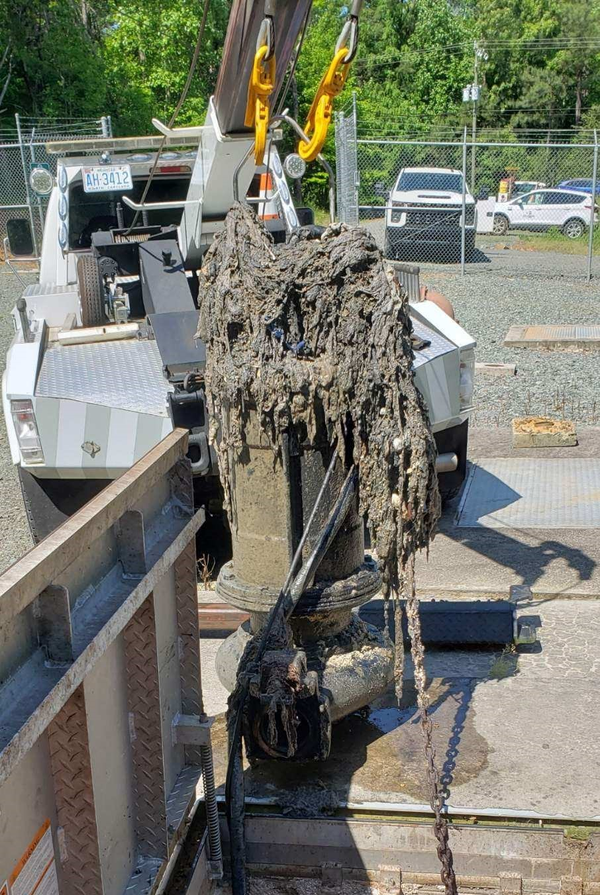Help Wipe out Sewer Issues
Flushing wipes, tampons and plastics leads to costly repairs in the sewer system

Hillsborough, we have a problem. It’s the wipes and tampons you’re flushing.
“The biggest problem with flushable wipes and feminine hygiene products is they don’t break down,” Utilities Infrastructure Protection Supervisor Troy Miller said. “If you put toilet paper under a stream of water, it breaks down immediately. Wipes and other products don’t break down. They clog pumps and motors at pump stations.”
A mechanical problem at the Elizabeth Brady Road pump station led crews last week to discover a pump wrapped in wipes and other trash, making it inoperable. Two pumps must be replaced. Replacement for one costs about $34,000. Additional costs will be incurred for labor and the use of a crane to lift and set the pumps.
Pump stations lift wastewater from a lower elevation to a higher one, where it then can flow by gravity toward the Wastewater Treatment Plant. There, water is extracted, disinfected and returned to the Eno River. Grinding equipment helps break down sewage before it reaches the pumps, protecting the pumps and making transfer to the plant easier. The amount of material that bypassed the grinders shows far too many people are flushing trash.
“If you are connected to the Town of Hillsborough’s sewer system, each toilet flush heads from the piping for your home to the community’s sanitary sewer pipes, pumps, and grinders for eventual treatment at the Wastewater Treatment Plant,” Miller said. “The system accommodates toilet paper, which is designed to disintegrate quickly in water.”
Flushing items that don’t break down risks clogging pipes and creating overflows in your home or yard or elsewhere in the sewer system. Items that should be trashed include:
- All parts of feminine hygiene products.
- Dental floss.
- Adhesive bandages.
- Sanitary and baby wipes — even if they are labeled “flushable.”
Flushing the plastic wraps and inserts from tampons sets up your sewer system and the public’s for a fatberg that could clog pipes and lead to sewage spilling into the environment. Plastic items float and collect fats and oil, which also shouldn’t be flushed in the sewer system. Flushable wipes, tampons and grease cause most of the blockages in the town’s sewer system.
“Eventually, it costs customers more money because we have to clean out the pump stations and replace equipment more frequently,” Miller said.
More information
For more information:
- See the Utilities Educational Outreach page.
- See the No Wipes in the Pipes video.
- Contact the utilities infrastructure protection supervisor by email or by phone at 919-296-9653.




